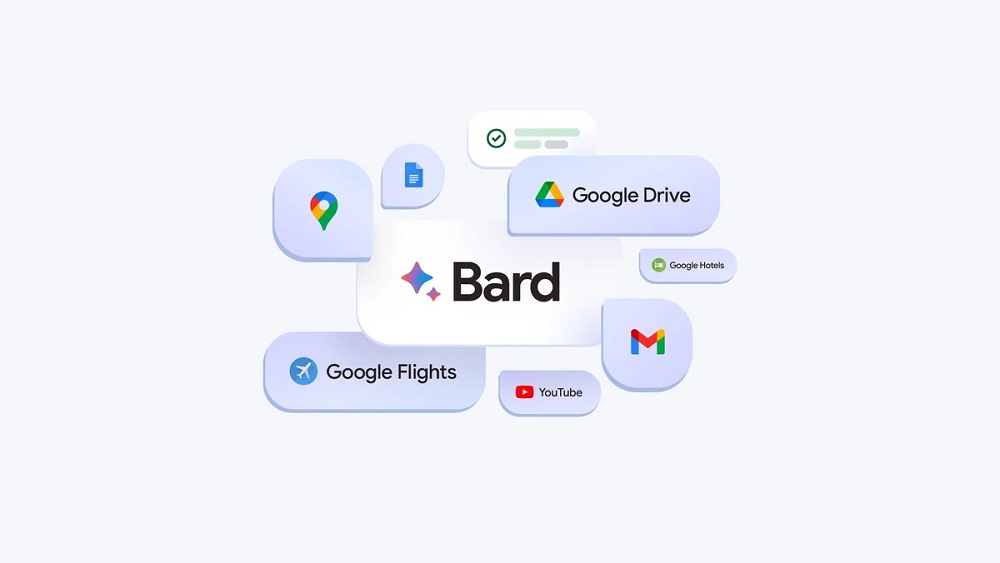Google has launched another major update for Bard, its AI chatbot that competes with OpenAI’s ChatGPT. The latest update allows users to connect the Bard with with various Google apps, including Gmail, Docs, Drive, Google Maps, YouTube, and Google Flights and hotels, through Bard Extensions. It would enable users to receive personalized responses based on their data housed within these apps.
“Bard can find and show you relevant information from the Google tools you use every day. For example, if you’re planning a trip to the Grand Canyon (a project that takes up many tabs), you can now ask Bard to grab the dates that work for everyone from Gmail, look up real-time flight and hotel information, see Google Maps directions to the airport, and even watch YouTube videos of things to do there — all within one conversation,” noted a statement by the company, highlighting that a user can also make multiple extensions work together to get to an outcome.
Sharing another example, the statement further added that a user can now ask Bard to find their resume from their [Google] Drive and summarize it to a short paragraph personal statement.
Google has also reiterated its commitment to safeguarding user privacy in the latest update to its AI chatbot, Bard. The company assures users that their personal information remains protected when utilizing the Workspace extensions.
Specifically, content from Gmail, Docs, and Drive is not subject to review by human assessors, nor is it employed by Bard for ad targeting or model training purposes. Moreover, users retain full control over their privacy settings, affording them the flexibility to determine the extent to which they wish to utilize these extensions, with the option to disable them at their discretion.
Bard’s product lead, Jack Krawczyk, explained to TechCrunch that when a user employs Bard with Gmail, the chatbot does not retain the entire Gmail inbox. Instead, Bard selectively searches a user’s inbox for information only when a user requests something that might be found in their inbox.
“It’s similar to how we’ve approached spam filtering in Google services in the past — your personal information isn’t read, because we believe that that trust is the most critical pillar upon which we build. It’s early, and you lose some precision, some of the broader capabilities because you don’t have that. But we think it’s a long arc to make this technology helpful. And we would rather do it right. Do it from the position of building trust from the beginning,” stated the Google executive.
Google eventually wants to extend support to third-party services within Extensions, but the company’s initial approach is to conduct testing and gather insights from the feature’s implementation using its own apps and services.
Bard Extensions are currently available in English only but with this latest update, Google has extended certain features from its previous Bard update to encompass over 40 languages. These additions include the capability to upload images with Lens, receive Search images in responses, and modify Bard’s responses.
The latest update also introduces two additional features: the ability to double-check Bard’s English responses and continue conversations shared by other users.
With the introduction of extensions, Bard appears to gain a significant advantage over ChatGPT. This advantage arises from Bard’s ownership of the apps from which it retrieves data, affording the potential capability to restrict access to OpenAI’s ecosystem. Notably, these apps carry substantial user bases, with YouTube boasting 2.7 billion monthly active users and Google Workspace, which includes Gmail, encompassing 2.6 billion users. This highlights Bard’s ability to tap into Google’s extensive user network and data sources, enhancing the user experience.
The timing of the update is quite interesting. It’s happening as Google is testing its latest model Gemini, getting ready for its release, while OpenAI is also in a race to launch GPT-Vision, their multimodal LLM, in an effort to stay ahead of Google and maintain their lead in the field.






